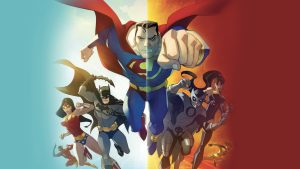
Almost every piece penned by Stephen King has found its way to the adaptation stage, whether it’s movies or television. But there’s an intriguing gap in the gaming world. Despite King’s impressive array of chilling and poignant tales, video games based on his work are few and far between. Of course, many games embrace King’s influence, often peppering in references or subtle nods to his universe. Take “Alan Wake,” for example. Its protagonist is a writer who faces the chilling consequences of his imagination, echoing the very essence of rural dread found throughout King’s narratives. Not only does “Alan Wake” name-drop King in its opening, but it also pays homage to iconic scenes like the infamous axe moment in “The Shining,” alongside terrifying encounters reminiscent of “Christine.”
While mainstream titles like “Alan Wake” grasp at King’s themes, some smaller indie games seamlessly weave his signature style into their narratives. Remember the eerie “Sanitarium”? Meanwhile, we still find ourselves wondering why we haven’t seen more direct adaptations of King’s stories into video games. Imagine an expansive open-world experience based on “The Stand,” where players alternate between multiple characters as they navigate a combat-heavy journey. Although such concepts remain unrealized, a few loose adaptations do exist, and they vary greatly in their reception and effectiveness.
Let’s explore some notable attempts to bring Stephen King’s universe to the digital realm, some of which might require an emulator to experience today.
First up is the oddball text adventure game based on “The Mist.” Released in 1985, this collaboration between Mindscape and Angelsoft tries to capture the essence of King’s story. The game’s introductory premise sounds compelling: a seemingly normal day at the grocery store spirals into chaos as a mist envelops everything in its path. Players embody David Drayton, striving to survive and locate his missing son amidst the confusion. Unfortunately, while the concept is solid, the game’s dated mechanics and text-based command system can feel cumbersome and often fail to deliver the fright or allure that King’s original novella captures.
Next, we have “Stephen King’s F13,” released in 1999 by Blue Byte Software. Marketed as a collection of bizarre mini-games, it includes a copy of King’s novella “Everything’s Eventual.” But let’s be real: “F13” barely justifies its existence. The game’s bizarre central premise revolves around a fictional function key, which it tries (and fails) to frame as a source of horror. The included mini-games, such as “No Swimming” and “Whack-A-Zombie,” lack any meaningful connection to King’s storytelling prowess, leaving players questioning its very purpose.
We also have “The Lawnmower Man,” inspired by the 1992 film loosely adapted from King’s short story. Released in 1993, this game attempts to blend interactive fiction with shooting and platform elements. Players step into the shoes of Dr. Angelo or another character, navigating challenges that revolve around the film’s narrative. However, it often leaves gamers frustrated with obscure controls and a lack of context for those unfamiliar with the original movie.
Among the adaptations, “The Dark Half” warrants a more genuine mention. Released by Capstone Software to coincide with George A. Romero’s 1993 film, this point-and-click adventure attempts to delve into King’s psychological themes. While it struggles with plot inconsistencies and frustrating gameplay mechanics, it stands out as the most committed effort to adapt a King story. Players go on a journey as Thad, an author embroiled in a murder mystery, even if the execution leaves much to be desired.
There’s also a loose adaptation from 1989 titled “The Running Man,” which saw a release for the Commodore 64. However, its connection to King’s work is tenuous at best. More recently, an indie title called “The Fog” emerged in 2017, aiming to deliver a horror experience based on “The Mist.” Unfortunately, it fell flat with poor graphics and overall execution, lacking the immersive atmosphere that is crucial for survival horror.
The overarching truth remains: the gaming world has yet to fully embrace the chilling and compelling narratives Stephen King has to offer. Until developers break through this barrier, we can only wish for the day a truly great game emerges from King’s storied universe.




